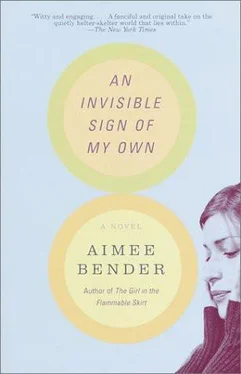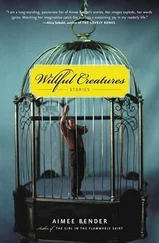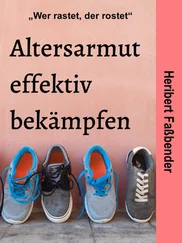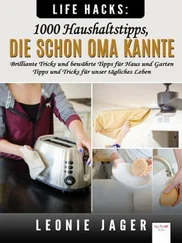He never found out it was me. He wore a 10 all that week, picking the shells painstakingly from his driveway with a handheld broom and trash receptacle.
A few months later, he dropped down to 3. I didn’t say a word about it. I was waiting by the car one morning for my mother to drive me to school when Mr. Jones came through his front door to take out his trash. It was not yet eight A.M.” and the air was cold and pale.
Oh hi Mr. Jones, I said.
I thought I caught him looking at me mournfully, and I figured he was thinking I was a selfabsorbed teenager now and had lost my youthful candor and observation skills. But I was standing there, completely aware of the loud and sad 3 around his neck, just refusing to comment.
Hi Mona, he said, voice hopeful.
So, I said, playing it up. So Mr. Jones, why do you wear those numbers around your neck like that?
His eyebrows bunched in, like a dog’s. I thought you knew, he said.
I stared straight at him, eyes cold with hate; I was thinking about how for three years straight now, Mr. Jones had seen my father get into his car in his suit of triple shades of gray and his face with its weird fogged absent skin and how he’d never said a single thing. No one else did either, but I thought Mr.
Jones, the man who praised noticers, might. I was wearing an invisible sign of my own now. It said: Up Yours Hypocrite.
Never once did he look at me and say: Mona, I know something is going on, and I notice you look sadder than you used to.
It would’ve meant a million dollars to me if he’d said something like
that. I would’ve been his slave forever. Instead, he kept s’ Ign Of changing his numbers and going about his day and lifting and lowering like a teeter-totter.
Don’t you remember? he asked that morning, approaching the hedge.
I blinked slowly. Remember? I said, hard. Remember what? He stared at me, disbelieving, and then went back inside for a minute, and came out again wearing a 1. The number hung heavy around his neck as he finished taking out the trash. He didn’t look at me again. I’d never seen the 1 before; it was very new-looking. I had a horrible day at school and when the substitute math teacher asked me to do the equation, I nailed it, found the value of y, and then said I had to go to the nurse, couldn’t she see I was in the midst of choking?
M r. Jones was still lost in the height of his newspaper as I turned the corner and drifted down Aisle Two. Here were screwdrivers, dead bolts, rows of hammers. I squeaked the shiny purple plastic of a shower curtain, and stroked the maple handle of a saw. The truth is, I love hardware stores. I longed to fill my arms with all of it, run back to the diner, and thrust a metal bouquet at my chilled father, consisting of wrench, pliers, and drill.
Yell: Go! Fix yourself!
I pictured them walking back to the car by now, slow, the sunburn a ruddy murky swamp drowning away my father’s face.
On the front wall of the hardware store, all seven different clocks clicked to five-to-eleven. I wandered down Aisle Three.
This row smelled sharp with cedar, and contained nuts and bolts, can openers, wooden spoons. Mallets and glue guns. Knives with sharp blades, my profile elongated, eyes slivered and blue in the silver.
Across the street, someone let out a loud hoot about one of the runners. I touched each knife and turned the corner.
Aisle Four had the gardening supplies. Hoses and shovels and hand-drawn signs that marked the placement of fruits and vegetables. I saw a few of Elmer Gravlaki’s father’s addresses hanging on the wall for sale, ornate wooden:4s and i7s, sanded to the smoothness of pebbles, and thought of Elmer, walking around with everyone’s house number rolling around in his head, the same way another kid learns to make his fist harder.
Closing in three minutes! called out Mr. Jones from his stool.
Closing? I said. It’s barely eleven in the morning.
He didn’t answer.
I found plant food in a green package nestled next to a pointy spade. I’d never seen my father garden but it seemed like a fine activity for a faded person, and this plant food looked as good as the one in the blue package and the one in the red package and who really needed to ask Mr. Jones anything. Half my job was done. In Aisle Five, I picked up a handful of nails, cold little metal fence posts, and stirred them in my palm. I was trying to think of how to explain to my mother that I’d broken my promise, shown up empty-handed, started a new tradition of no presents at all, when right then, two minutes before closing, I turned my head one inch to the left, and saw what I wanted for my twentieth birthday.
My heart picked up a beat. I knew it instantly, dripped the nails back into their bin, and walked over.
There was only one left.
Hanging from a hook high on the wall, in Aisle Five, was a medium-sized solid steel ax. Sharp and mean and perfect. I didn’t know if I had ever actually seen an ax before, but this particular model was the basic type you read about woodcutters using, with a flared silver blade attached to a light grainy wooden handle the color of un sunned blond hair.
Everyone makes fun of shopping but it’s all about this. It’s all
about suddenly attaching to an object so deeply you can’t leave it in the store. I wanted that ax. I was meant for that ax. I loved the graceful skirt of the blade and how it looked like it came all the way from a forest. I loved how the edge was so sharp it glittered, and the powerful way the metal poised like a panther on the wood. It was such a hopeful ax, up there, wanting to be bought and used, in this warm-weather town where the houses were built without chimneys. I reached up and lifted it off the wall and brought it straightaway to Mr. Jones. The sudden flush of birthday prickled over the back of my neck.
just in time, I said.
He looked up from his newspaper and checked the price tag.
Twenty-four dollars, he said.
It’s my birthday, I told him.
He folded the paper into fourths and put it to the side. Unusual choice, he said. How old?
Twenty, I said.
He nodded. Lucky for both of us I’m still open, he said. I’d like to buy this ax, I said. And some licorice.
He carefully removed the price tag from the stem of the ax and then pulled a rope of red licorice out of the bin near his knees.
Here, he said. That’ll be nineteen dollars. I’ll give you a twenty percent discount being that it’s your birthday. Plus one dollar for the licorice. Twenty even. A dollar per year, he said, nodding at the sense of it.
I could smell the Sunday air drifting into his store, dry and vast, the moving sky.
Thanks, I said. I pulled the crumpled fifty from my pocket and 6 handed it to Mr. Jones. Fifty: half a life, maybe. Half a countdown.
L. I thought of telling my mother, voice somersaulting with glee, -‘. o’i how for once I’d found something I really wanted. Her forehead would clear, face smooth; she’d say, How wonderful Mona! What did you get?
It’s useful, I’d tell her. I’ll use it.
Mr. Jones counted the change backward into my palm. I folded the bills and placed them in my back pocket together: one bill the new age I was right now; the other the age I was when my father turned from a robust man who raced me on the track to one who froze inside restaurants.
That’s forty and fifty, Mr. Jones said, and I don’t need a bag, I told him. I’ll carry it. Oh, and the plant food too.
I’d almost forgotten the little sinking bag on the counter. He rang that up.
What’s a girl like you doing with an ax? he said. You going to chop firewood? He laughed at his own joke.
Don’t you remember me? I asked him.
He scrunched up his nose. Remember you, he said. Remember what? That’s four dollars.
Читать дальше












